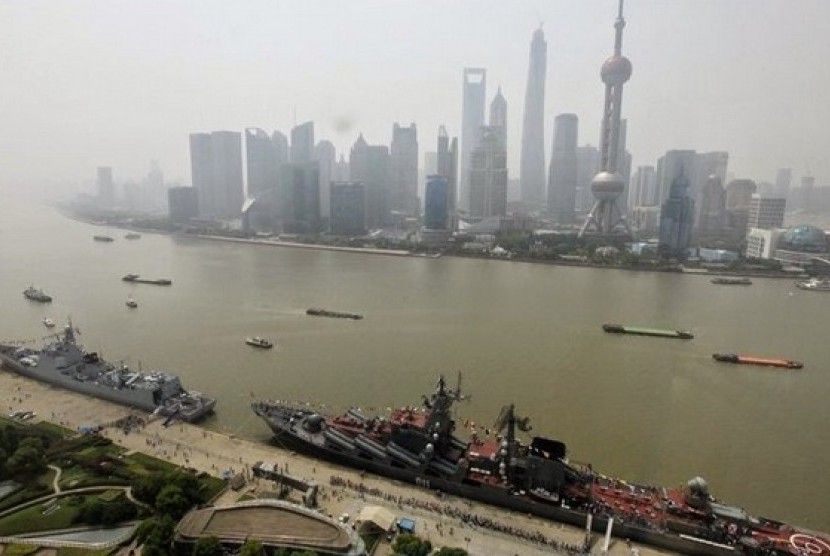REPUBLIKA.CO.ID, BEIJING -- China has confirmed it will participate in a major US-organised naval drill for the first time, official media said Monday, amid heightened distrust between the two military powers.
The Chinese navy will participate in the Rim of the Pacific (RIMPAC) multinational naval exercises, the military's official People's Liberation Army Daily reported.
China is embroiled in a series of rows with its neighbours in the East and South China Sea that have caused concern in Washington, which closely monitors Beijing's rapid military rise.
The PLA Daily report quoted navy spokesman Liang Yang as saying it was the first time that China would participate in the joint maritime exercise.
Beijing will send four ships, including a missile destroyer, a missile frigate, a supply ship and a hospital ship to the drill, the report said.
The exercises are scheduled for mid-June, when Chinese ships will join US vessels off the Pacific island of Guam, a US territory, before sailing in formation to Pearl Harbour in Hawaii.
US officials had previously said that China had accepted the invitation to attend the drill, but there has been no confirmation from Beijing.
The RIMPAC exercise will be led by the US and will involve more than 20 nations and at least 25,000 personnel. In the previous RIMPAC in 2012 about 40 ships and six submarines took part.
The Pentagon last week said China underestimates its growing defence budget, which in 2013 probably neared $145 billion, higher than the officially announced $119.5 billion.
China's defence ministry said it "resolutely opposes" the report, which it said "makes pointless accusations, exaggerates the 'Chinese military threat' and is a completely wrong course of action", according to a statement reported by official media.
Beijing has sought to counter the US's foreign policy "pivot" to Asia, seen as a move to refocus its attention on the region after years of intense diplomatic and military involvement in Iraq and Afghanistan.
Washington's traditional allies include Japan -- where it has military bases and whose security it guarantees by treaty -- and the Philippines. Both of those countries have maritime disputes with China.


